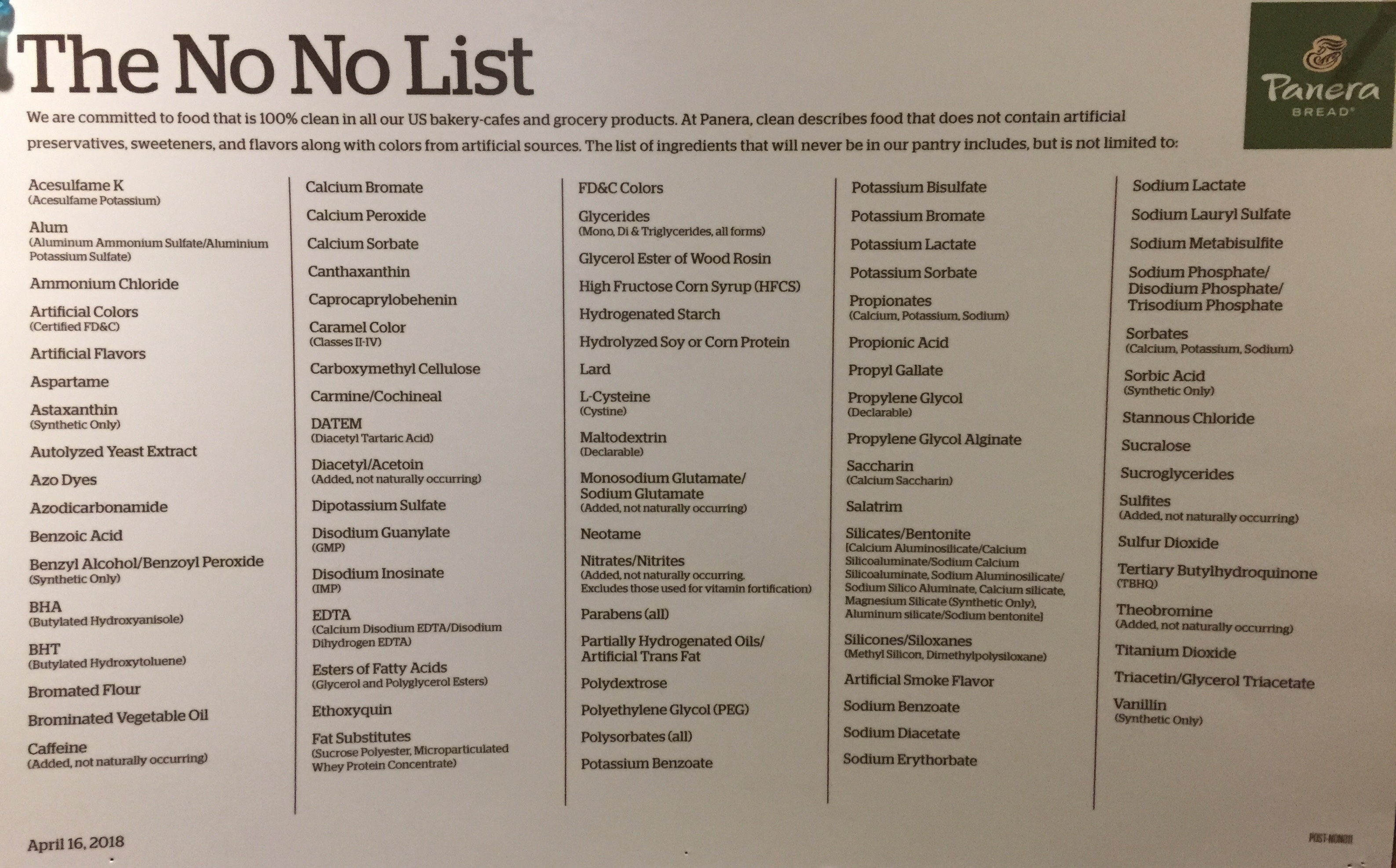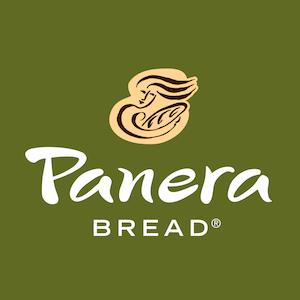A couple of years ago, Panera Bread went crazy. Somebody high up in the corporation decided that selling (what is, in my opinion1) really great tasting food was no longer a sufficient strategy. No, if Panera Bread wanted continued success, it needed to go on a full frontal assault against science.
Insanity ensued. Panera began mimicking the Food Babe, whose thoroughly unscientific mantra is that we shouldn't eat foods that we can't pronounce. One of their first ads targeted butylated hydroxyanisole (doesn't that just sound scary?), otherwise known as the perfectly safe preservative BHA.
In a separate ad, Panera bragged that it "blew up artificial preservatives to celebrate July 4th," which is akin to saying that the best way to celebrate Independence Day is by increasing food waste and the likelihood of foodborne illnesses. The war on preservatives, which help prevent both of those, is truly ludicrous2.
Chemicals on Panera Bread's 'No No List' Are In Its Food
The stupidity continues. My local Panera Bread has this "No No List" posted, which boasts that the following ingredients will "never be in our pantry":

Uh-huh. There are too many listed to debunk each individually, so let's just tackle the most absurd ones.
L-cysteine. L-cysteine is an amino acid and one of the (roughly) 20 building blocks of proteins. Your body makes L-cysteine, even if you don't eat any of it3. Foods that contain protein are loaded with L-cysteine. If Panera Bread serves protein, and I know absolutely that it does because I just ate a chicken sandwich, then its food contains L-cysteine. The company violated its own No No List.
Vanillin (synthetic only). Almost all, as in probably 99+%, of the vanilla flavoring used in food is at least semi-synthetic. The reason is that there isn't enough natural vanilla to satisfy the gigantic demand for it. So, chemists make it. It is identical in every way to natural vanilla, so the only thing that Panera Bread is accomplishing by insisting on fully natural vanilla is paying a premium and passing along those higher costs to customers.
Autolyzed yeast extract. Yeast extract is what's left over after yeast cells have had their cell walls removed. It's used as flavoring. Whole yeast cells, which aren't all that different from yeast extract, are used to make bread. You know, like Panera Bread.
Glycerides. Triglycerides are the most common type of fat that we encounter in food. In fact, anything known as "fat" or "oil" is probably a triglyceride. Bacon contains triglycerides, but then so does olive oil4. ) Panera Bread serves red meat and dairy products, which means its foods contain triglycerides. And even if they didn't, your body produces triglycerides. It's how we store excess energy (in the form of fat).
Propionates. The bacteria that live in your gut digest fiber and produce propionate. It's in your body no matter what.
Propionic acid. That's the same thing as propionate. These people are morons. Or, more likely, they think you're a moron.
This could go on and on, but you get the picture. Panera Bread is relying on widespread scientific illiteracy, chemophobia, and flat-out lies to sell its food. What a shame.
Notes
(1) Perhaps ironically, I am writing this article from a Panera Bread.
(2) Poetically, Panera Bread had to issue a recall over food potentially contaminated with Listeria. Karma.
(3) Basically, that would be impossible since everybody eats at least a little protein.
(4) The reason some triglycerides are healthier than others has to do with the structure of the attached fatty acids, which are known as saturated or unsaturated. Unsaturated fatty acids are considered to be healthier.




